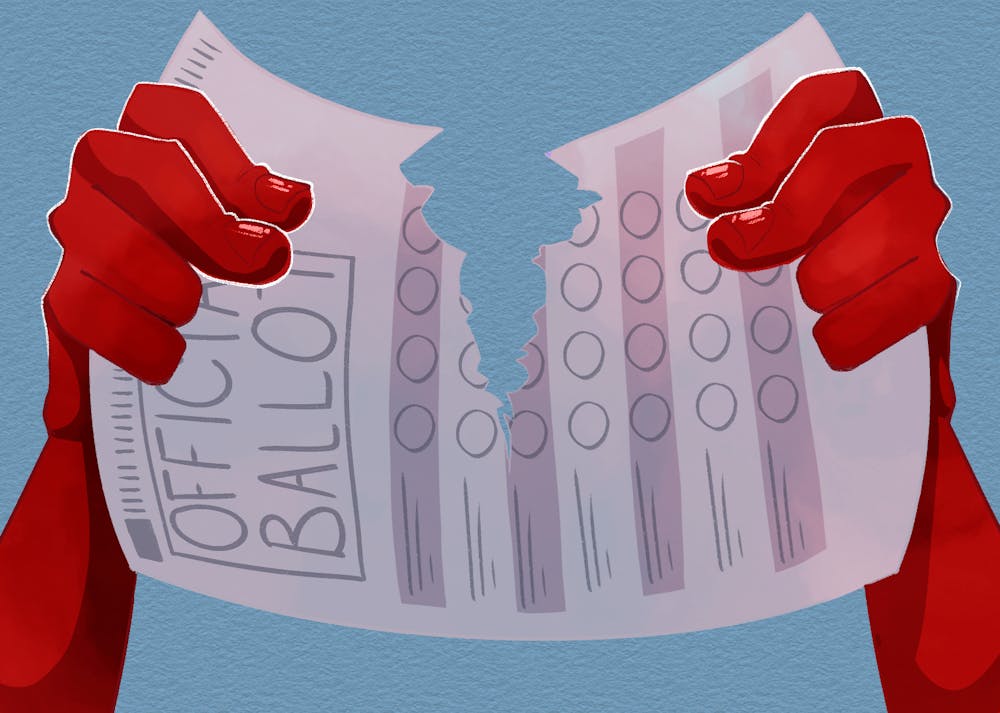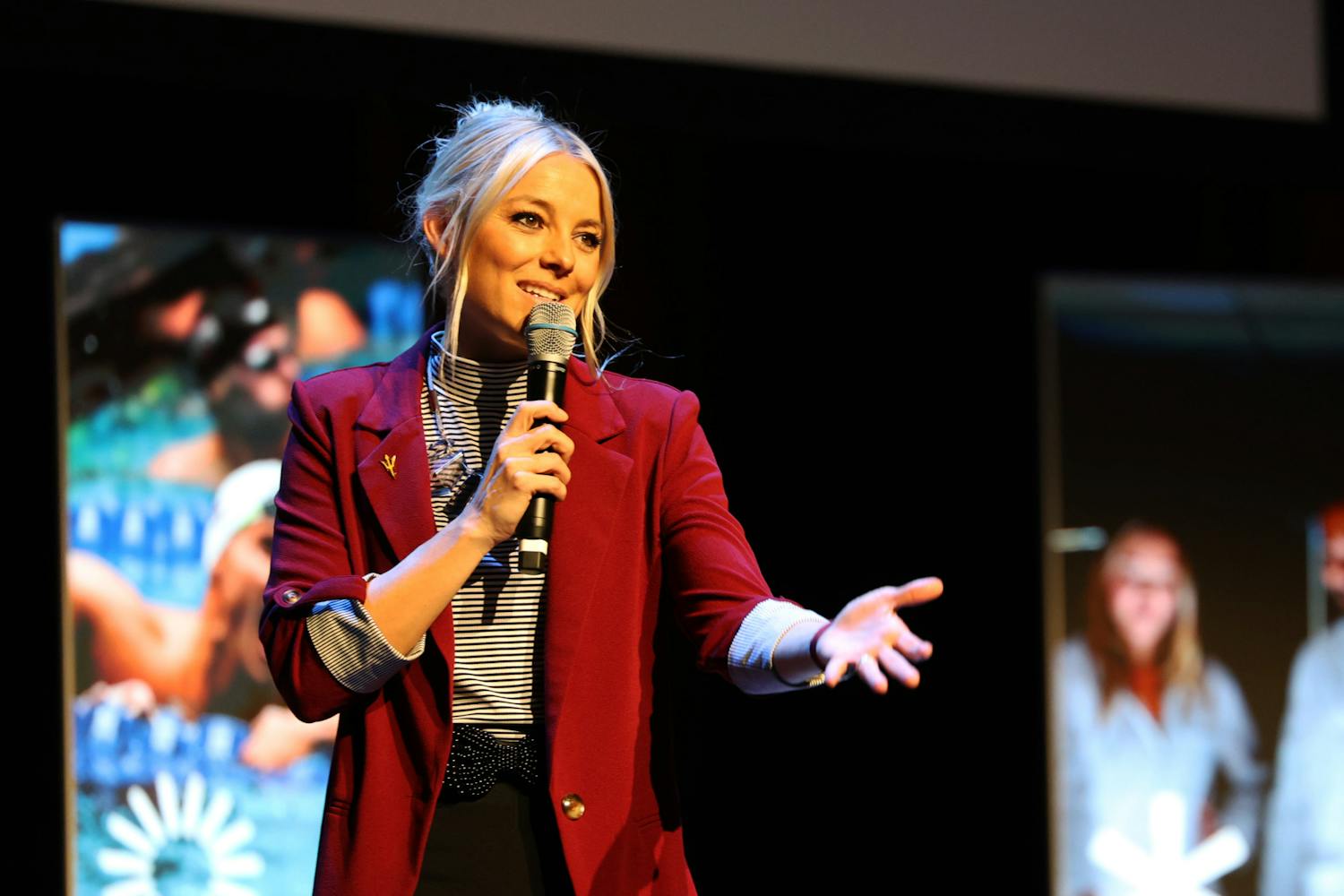Anti-democratic propositions and candidates on the ballot in Arizona should be seen as direct attacks on democratic processes in the state and the U.S., and voters should oppose them when voting this election cycle.
Propositions 128, 129 and 132 each act in different ways to dramatically weaken one of the most potent tools for progressive change in the U.S. and Arizona.
Proposition 128 would allow the Legislature to alter voter-approved initiatives found to be illegal or unconstitutional with a simple majority vote. This gives a lot more room for the Legislature to strike down initiatives, even if they were passed by the majority of voters.
Proposition 129 is more specific to how voter initiatives are formatted. If passed, it would ensure voter initiatives could only address one subject at a time. At face value, our world is not a single-issue world, and voter initiatives that inevitably need to tackle more than one issue at once would be at risk of running aground.
The most explicitly anti-democratic of the three is Proposition 132. It would require 60% of voters to approve any new taxes through the initiative process. This proposition would serve as a great boon to conservative lawmakers who prioritize tax cuts for the rich, a policy voters have recently disapproved of, through requiring more than a simple majority.
Each of the anti-democratic propositions were put on the ballot after being referred by the Legislature. The legislators who referred the propositions to the ballot, ironically enough, were voted in by some of the same people they are now trying to suppress.
"I think legislators are noticing that more people are becoming aware and more people are wanting their voice to be heard, and maybe that's an issue for what their power dynamic is like," said Eman Massoud, a sophomore studying criminology and criminal justice who has experience in civic engagement and activism.
The Legislature understands when the average Arizonan is asked about policy positions directly, they will often stand to the left of right-wing politicians in office. For example, in 2020, Proposition 208 passed by over 100,000 votes to raise taxes on the rich and better fund public education in Arizona.
While the proposition was ultimately overturned in court, the will of Arizona voters showed they want to support Arizona public schools through progressive taxation. This serves as a stark contrast to what some of the Arizona Legislature supports, as it recently passed a school voucher program into law that will funnel public resources into private education.
It's a dispiriting reality that in the U.S., state and federal level governments frequently don't support what its citizens do, but it's also not surprising. Capitalist society delegitimizes representative democracy, as those with the most money have the most power and influence in government.
A 2014 study from Princeton University found that "economic elites ... have substantial independent impacts on U.S. government policy" while average citizens have "little or no independent influence."
It's not just the propositions on the ballot threatening the crumbs left of liberal democracy in Arizona — it's also the candidates running next to them. Kari Lake, Blake Masters and Mark Finchem have each made statements questioning what was secure, sound elections in 2020, and they are also each supported by Donald Trump.
"You see a lot of these Republican candidates coming from higher backgrounds. They're not everyday people, and obviously, they're going to push for things that benefit them and benefit their party and benefit whatever they stand for," Massoud said.
Lake, Masters and Finchem will each go out of their way to destroy direct democracy and voting rights. Lake and Masters will fight to take down unions and public institutions that support working people. Masters himself has called for the end of teachers' unions.
Attacks on democracy, unions and public institutions must be seen as a combined effort. There are many more working people than there are CEOs and executives, so eroding democratic processes and institutions is a simple logic for supporters of a capitalist system.
Arizona voters should vote against anti-democratic candidates and propositions, and they should also fight for anti-capitalist institutions that have the power to anchor democracy.
Edited by Sadie Buggle, David Rodish, Piper Hansen and Grace Copperthite.
Reach the columnist at astigile@asu.edu and follow @StigileAaron on Twitter.
Editor's note: The opinions presented in this column are the author's and do not imply any endorsement from The State Press or its editors.
Want to join the conversation? Send an email to opiniondesk.statepress@gmail.com. Keep letters under 500 words and be sure to include your university affiliation. Anonymity will not be granted.
Like The State Press on Facebook and follow @statepress on Twitter.

Aaron Stigile is an opinion columnist at The State Press. He previously wrote for The Defiant Movement and is working toward a bachelor’s degree in Journalism and Mass Communication. He is also working toward a minor in Spanish and a certificate in Cross-Sector Leadership.




